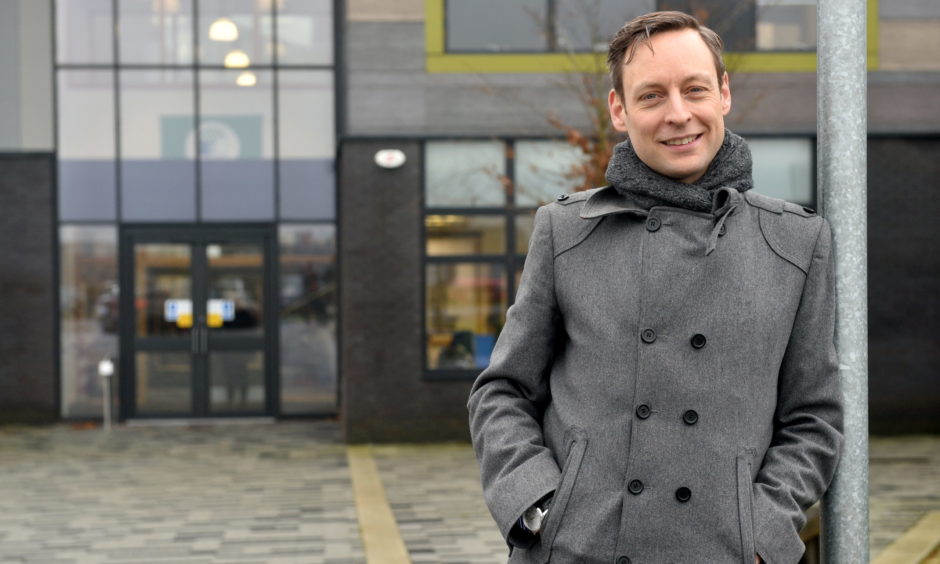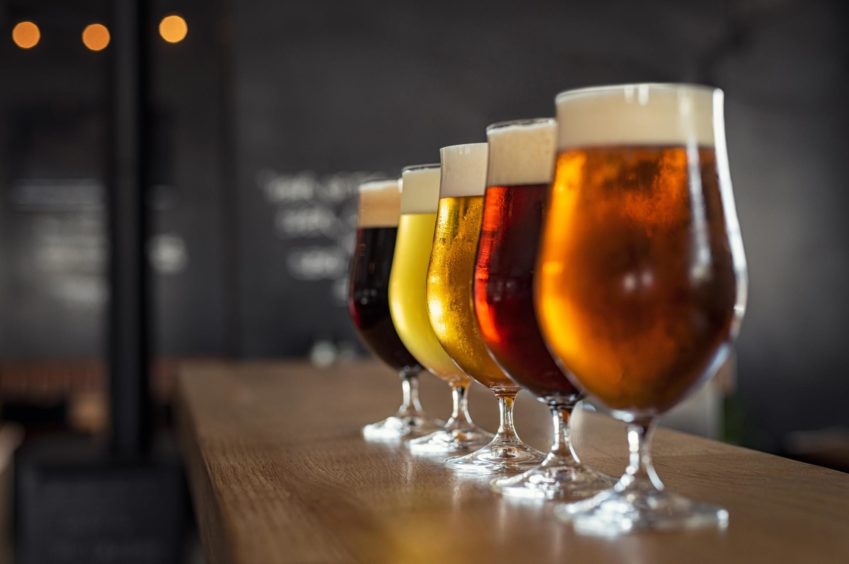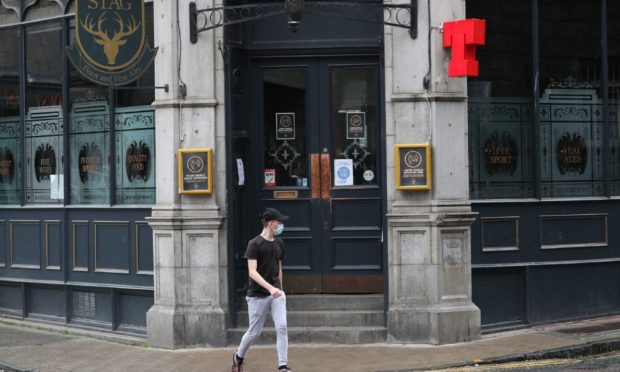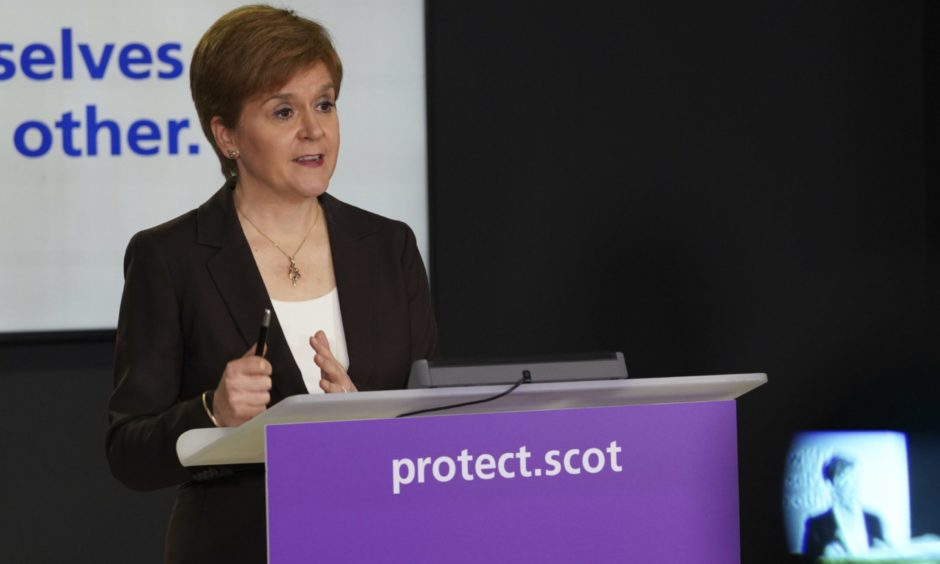A support package for businesses struck down by coronavirus restrictions has been branded a “slap in the face” after it emerged firms in central Scotland are receiving twice as much as their counterparts elsewhere.
Pubs, bars and restaurants in the central belt have been legally forced to shut up shop until further notice amid a nationwide ban on selling alcohol indoors.
The restrictions, which were initially set to run until Monday but have now been extended for at least an extra week, also include a range of tough controls on how and when businesses can operate across the country.
The Scottish Government’s Covid-19 Restrictions Fund provides one-off grants of up to £4,310 to businesses legally forced to close, while firms “directly impacted by the restrictions” but not specifically instructed to shut have access to up to £2,155.
It means many hospitality businesses in the north and north-east of Scotland have been left trapped in a position where their existing model is no longer viable under the current restrictions but they have limited access to support if they decide to close.
The Scottish Government is already facing an unprecedented face-off with Scotland’s hospitality sector after five of the country’s leading industry bodies commenced legal action against the current temporary coronavirus restrictions.
But ministers now face fresh questions over its support arrangements after MSPs reported receiving complaints from publicans over the “central belt bias”.
Getting complaints from Perthshire publicans that the financial support they are getting from @scotgov is precisely HALF of that paid to those in Edinburgh, Glasgow etc. Why the Central Belt bias?
— Murdo Fraser (@murdo_fraser) October 22, 2020
North East MSP Liam Kerr claimed north-east businesses had been “left in the wind” by the funding package and called on the Scottish Government to make things right.
He said: “For businesses who can feel they have done everything right and complied with everything they’ve been asked, this will be a slap in the face.
“There must be proper parity for employers to access grants from the SNP, regardless of where they are in Scotland. They are all suffering and need support. The restrictions do not begin and end in the central belt.”

Nicola Sturgeon was challenged on the issue during her daily coronavirus briefing on Wednesday and asked whether she believed the current arrangement was fair.
The first minister said her government was facing funding constraints but was trying to persuade the UK Government “to do more” on business support.
“None of this is fair, so I’m not going to stand here and use that word in any context here,” Ms Sturgeon said. “A global pandemic is really unfair in what it does to people and businesses, and to life generally.”
The SNP leader said her officials were trying to be “as fair as possible” and hoped the chancellor’s announcement earlier in the day would enable the Scottish Government to increase the level of support available to businesses.
“We have to put packages together that recognise that there is a difference, and I appreciate that this difference in practice may be less than it appears to be in theory,” Ms Sturgeon said.
“But there is a difference between a business that is just not allowed legally to open and one that has restrictions on it but can still stay open and trade in some way. So there is always going to be a difference in the support that is provided.”
Meanwhile, the Scottish Beer and Pub Association, Scottish Licensed Trade Association, UKHospitality, the Scottish Hospitality Group and the Night Time Industries Association have commenced legal action against current restrictions.

In a statement, the group said operators were under “intense pressure” and were “fighting for the very survival of their businesses and for the jobs that they provide”.
The Scottish Government was served with notice of the action on Wednesday morning after the trade bodies received an opinion by prominent legal expert Aidan O’Neill QC advising that a Judicial Review would be warranted.
The letter requests a response from the Scottish Government before 4pm on Wednesday, failing which matters could move forward to a Petition for Judicial Review.
The group’s spokesman, Paul Waterson, said it understands and entirely supports the goal of suppressing the virus but the sector “is at breaking point”.
He said: “Despite having more mitigation measures than other sectors and the vast majority of operators going above-and-beyond in ensuring customer safety, our sector has been repeatedly targeted without consultation and without the evidence.
“Anecdotal evidence is not the way to go about making government decisions and the sector should not be used as a balance to uncontrollable risks in other far less regulated and unmonitored sectors.”
Mr Waterson pointed to evidence published in Northern Ireland which suggests hospitality closures have around 0.1 to 0.2% impact on transmission rate and measures were instead used to ensure behavioural and policy compliance in other areas.
He said the industry had been “held up as a sacrificial lamb” and the group did not believe measures in Scotland had been proportionate or backed up by evidence.
“The industry simply cannot endure the extension of the current restriction, further restrictive measures expected from the 2nd of November or get into a stop start situation,” Mr Waterson said.
“We are now facing the end of our industry as we know it. The battle is now on to save the hospitality sector.”

